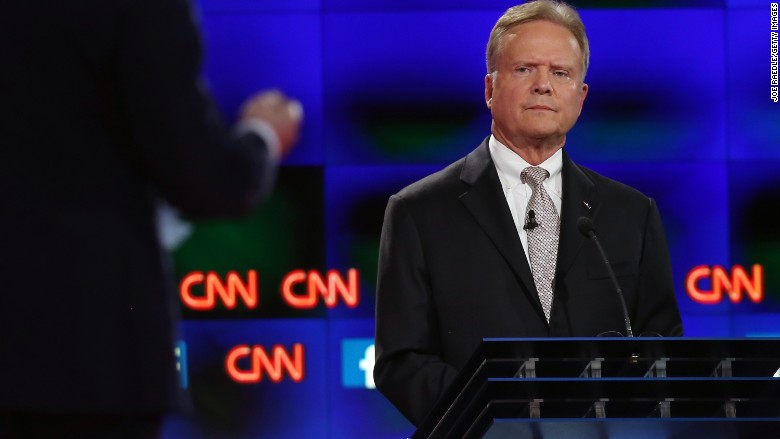
Jim Webb said during Tuesday's Democratic debate that the greatest "day to day" national security threat is cyber warfare.
Whether cyber warfare is the single largest threat to the United States, or merely among the biggest, is besides the point. What matters is that Webb was the only presidential candidate to even mention cybersecurity, a subject that deserves more attention.
America's top intelligence officials testified before Congress last month that cyberattacks are growing more severe, and the country doesn't have sufficient protections in place to prevent a serious cyber catastrophe.
That doomsday scenario involves a foreign country attacking the electrical grid, shutting off power across the country. Or perhaps it's an attack on the computer systems controlling stock trading. An attack on command and control centers for nuclear facilities might even be possible.
Luckily, catastrophic cyberattacks remain unlikely, according to U.S. national intelligence director James Clapper. But he has warned that serious cyberattacks aren't some remote threat -- they're happening today.
Hackers recently stole copies of 21.5 million U.S. government personnel records. Some U.S. officials think the Chinese government was the culprit.

Corporate cyberespionage also happens on a daily basis. Hackers are constantly looking to gain access to companies' file systems and servers, hoping to uncover valuable information that they can sell on the black market. Sometimes companies are doing the hacking, stealing rivals' ideas. China has also been accused of using its military hackers to steal American company secrets to give Chinese corporations a competitive edge.
Organized cybercriminals and scammers are also making off with billions of dollars funneled out of companies, governments and private citizens' bank accounts.
Another serious threat is data manipulation, in which cyberattackers hack into accounts and display fake numbers, causing mass confusion and an erosion of trust in banks.
Congress and the president have been wishy-washy about passing legislation that would help combat some cyberthreats. The Obama administration has admonished China for its cyberattacks, but it has stopped short of imposing sanctions.
Meanwhile, Congress failed to pass a law that would have given companies the ability to share cyberattack information with the federal government.
-- Jose Pagliery contributed to this report.

